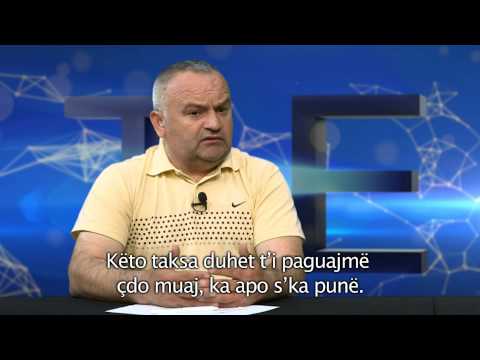Drivers crossing all boundaries
Drivers of vehicles that frequently cross the border between Kosovo and Serbia traveling to the territories of long history of hostility, share their experiences.
They complain that the agreement on free movement on this border, which came into force on December 26, 2011, paradoxically has hindered freedom of movement due to high taxes. They do not complain about other problems. All these are part of the new edition of “Tema” programme.
On the freedom of movement in Kosovo-Serbia border, after the free movement agreement entered into force on 26 December 2012, speak those that often cross this border on both sides of it, traveling to neighbouring countries with long history of hostility.
This topic will be addressed in the new edition of the “Tema” programme with drivers and owners of transport companies from Kosovo and Serbia who constantly travel to these two countries.
Sreten Djoroviq, a truck driver and owner of the company Becko Transport, told “Tema” he has no problems with Albanians when traveling.
“To those who don’t speak Serbian, I speak in Albanian and we always seem to understand each other,” adds Djoroviq.
Djoroviqit colleagues, whether they are Albanians or Serbs, seem to have no problems during their voyages, although acknowledging that the political situation significantly affects their work.
“Albanians often travel with me. They go to Belgrade to visit doctors and sometimes just for fun” says Bogoljub Marin
kovic, the owner of “KIMco” travel agency, traveling every day from Kosovo to Belgrade and back.
Fehmi Jashari, owner of the “Lina-A” company from Fushë Kosova, admits he has no problems when traveling to Serbia and mentioning his favourite dining places too.
“It’s happened before. However, if somebody happens to torn my tires, or anything else, I turn to the first car service and fix them with no problem,” he said. “The fact our vehicles carry temporary plates people know we are Albanians from Kosovo,” he added.
The freedom of movement is far more difficult now due to higher taxes that need to be paid on both sides of the border.
Bogoljub Marinkovic thinks that the problem is not the ordinary people, but the political agreements that have turned out to be quite expensive.
“We didn’t pay this much taxes not even during the time when Turks used to collect tributes,” he says.
Marinkovic complains that a large part of earnings goes for taxes paid in Serbia. When traveling to Serbia there are no mitigations for him as a Serb from Kosovo.
Fazli Sylejmani, an Albanian taxi driver from Presevo, says that insurance costs more than half of the car he drives. He pays 20 euros each week to enter Kosovo.
“This makes the ticket more expensive, increases travel time and decreases number of clients,” he said. Sylejmani believes it would be much better if these taxes are removed. “I have to make three trips to Kosovo in order to make some profit for myself,” he adds.
Marinkovic thinks that Serbia and Kosovo should reach an agreement on the green card vehicle insurance which is used when traveling abroad.
“Tema” debate program on freedom of movement and other problems that drivers from both sides face will also tackle the police fine phenomena, queues and corruption, as well as who takes more bribes Kosovo or Serbian police.
TEMA program is production of Internews Kosova and BIRN, supported by the Ministry of Foreign Office of United Kingdom. The new edition of “Tema” program on freedom of movement will be broadcasted in Kosovo in Television 21, Monday at 22:30 and Serbia in PINK-2, Saturday at 19:00.

